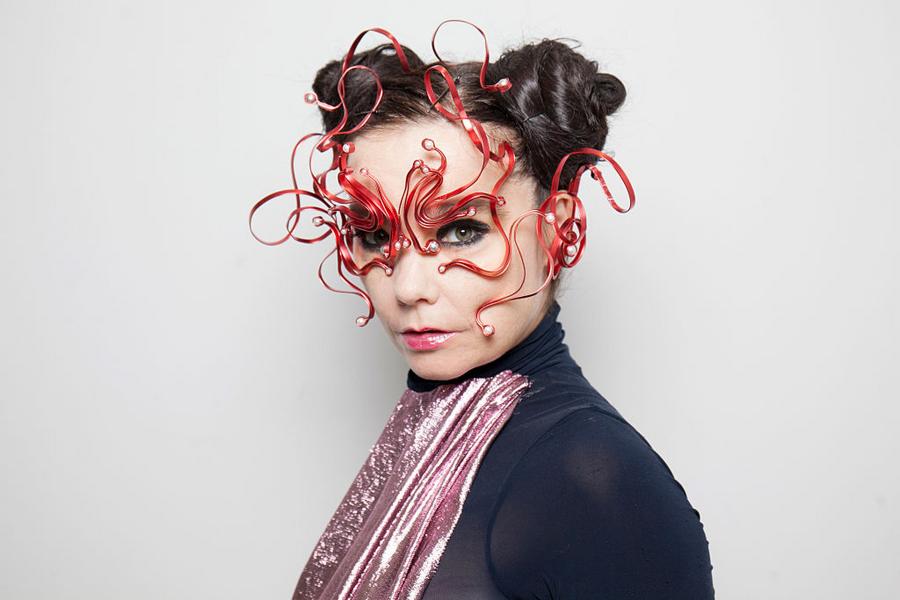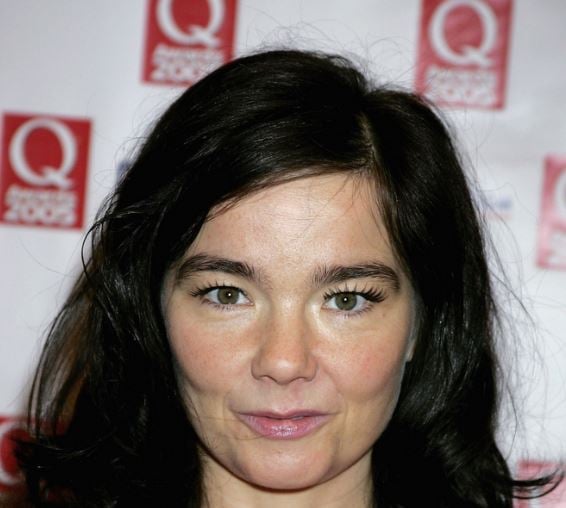What Is Björk's Net Worth?
Björk is an Icelandic musician and producer who has a net worth of $10 million. Björk first rose to fame as the lead singer of the band the Sugarcubes. She started her solo career in the early '90s with her electronic dance music and jazz album, "Debut." Today, that album is considered to be one of the pioneers in the genre.
Björk began her music career as a child, releasing her first album at the age of 12. However, she gained international recognition as the lead vocalist of the alternative rock band The Sugarcubes in the late 1980s.
Embarking on a solo career in the 1990s, Björk quickly established herself as a musical chameleon, seamlessly blending elements of electronic, pop, experimental, classical, and trip-hop music in her work. Albums like "Debut," "Post," and "Homogenic" have been critically lauded for their creativity and originality.
Björk is also known for her avant-garde visual aesthetic, particularly her groundbreaking music videos and daring fashion choices. Her collaborations with directors like Michel Gondry and Spike Jonze have resulted in some of the most memorable music videos of all time. Additionally, her acting turn in Lars von Trier's "Dancer in the Dark" (2000) won her the Best Actress award at the Cannes Film Festival.
Early Life
Björk was born Björk Guðmundsdóttir on November 21, 1965, in Reykjavik, Iceland. She is the daughter of activist Hildur Rúna Hauksdóttir and union leader/electrician Guðmundur Gunnarsson. Her parents split shortly after she was born, and she moved with her mother to a commune. At age six, Björk enrolled at the Reykjavík school Barnamúsíkskóli, where she studied classical piano and flute.

(Photo by Santiago Felipe/Getty Images)
Career
After a school recital in which Björk sang Tina Charles' 1976 hit "I Love to Love," her teachers sent a recording of the performance to Iceland's (then) only radio station. It was broadcast nationally, and after hearing it, a representative of the Falkinn record label offered young Björk a recording contract. She recorded her self-titled debut album, "Bjork," at age 11. It was released in December 1977. During her teens, she formed an all-girl punk band called Spit and Snot. A year later, she formed a jazz fusion group called Exodus. She then graduated from music school in 1982, and she and bassist Jakob Magnússon promptly formed another group, Tappi Tikarrass. Their album "Miranda" was released in December 1993. Around this time, Björk was developing her signature vocal styles, punctuated by howls and shrieks. In 1986, she gave birth to her first child and also scored her first acting role on "The Juniper Tree." Björk was at that time involved with the band the Sugarcubes. They released their first English single, "Birthday," in the UK in August 1987. They signed with Elektra Records in the U.S. and recorded their first album, "Life's Too Good," which was released in 1988. The album went on to sell more than one million copies worldwide. The Sugarcubes toured North America in late 1988 to positive reception and performed for the first time on "Saturday Night Live." By 1990, Björk had begun working on her solo projects. In 1992, she left the band and moved to London to pursue her solo career. The Sugarcubes split up shortly after.
After she moved to London, Björk began working with producer Nellee Hooper (Massive Attack's producer, among many other big acts of the time), and together they produced her first international hit, "Human Behaviour," still arguably one of her most iconic songs. Through the power of MTV, its music video gained strong airtime and attracted attention. Her first adult solo album, "Debut," was released in June 1993 to positive reviews. It was named album of the year by NME and eventually went platinum in the U.S. At the 1994 Brit Awards, Björk won for Best International Female and Best International Newcomer. Her success led her to collaborate with many British artists on several one-off tracks. Her second solo studio album, "Post," was released in June 1995. The album was ranked #7 in "Spin" magazine's "Top 90 Albums of the '90s" list and #75 in its "100 Greatest Albums, 1985–2005" list. "Post" eventually went platinum in the United States. In September 1996, Björk's obsessed stalker Ricardo Lopez attempted to kill her by mailing a letter bomb to her London home. Lopez committed suicide after mailing the bomb.

Getty
After that, Björk left London for a new life in Spain and recorded "Homogenic." In 1999, she was asked to write and produce the musical score for the film "Dancer in the Dark," directed by Lars von Trier. He eventually convinced her to play the main character as well. The film received the Palme d'Or, and Björk won the Best Actress Award for her role. "Selmasongs," the soundtrack Björk created for the film, was released shortly after. The album features a duet with Thom Yorke of Radiohead titled "I've Seen It All," which was nominated for an Academy Award for Best Original Song and was performed at the 2001 Oscars (without Yorke) while Björk was wearing her iconic swan dress.
In 2001, she released "Vespertine" and subsequently embarked on the "Vespertine World Tour." The shows were held in opera houses around the world and in theatres, and she was accompanied by an Inuit choir. It was her fastest-selling album to date at that time, selling two million copies by the end of the year. The album spawned three hit singles, "Hidden Place," Pagan Poetry," and "Cocoon." In 2002, Björk released the CD box set "Family Tree" and "Greatest Hits." The new single from the set, "It's In Our Hands," was directed by Spike Jonze and featured a heavily pregnant Björk, who gave birth to a daughter shortly after.
In August 2004, Björk released "Medulla," an entirely vocal-based album. It debuted at #14 and was, at the time, her highest-charting album in the U.S. Later that month, she performed the song "Oceania" at the Opening Ceremony of the 2004 Summer Olympics in Athens. During this era, she also earned another Brit Award. Björk's sixth full-length studio album, "Volta," was released in May 2007. Björk went on to release "Vulnicura" in 2015 and "Utopia" in 2017. She has collaborated with hundreds of artists over the course of her sprawling career. She has performed on 11 world solo tours. Björk has been nominated for 14 Grammy Awards, an Academy Award, and two Golden Globes, though she's never won. Despite not winning those awards, Björk has won four MTV Video Music Awards and four BRIT Awards. "Rolling Stone" magazine considers her among the top 100 greatest singers of all time.
/2021/01/Bjork.jpg)
/2010/11/Annie-Lennox.jpg)
/2023/04/rosalia.jpg)
/2016/11/Alexander-McQueen.jpg)
/2022/11/Robert-Palmer.jpg)
/2022/06/Anya-Taylor-Joy.jpg)
/2020/02/melissa-rivers.jpg)
/2020/11/Yella-Beezy.jpg)
/2020/08/cusack.jpg)
/2023/08/richard-dawson.png)
/2011/08/Doug-Hutchison.jpg)
/2010/07/GettyImages-80351333.jpg)
/2021/01/oldman.jpg)
/2012/11/GettyImages-470080838.jpg)
/2009/12/Mario-Lopez-1.jpg)
/2014/07/GettyImages-688457574.jpg)
/2023/04/Benny-Blanco.jpg)
/2021/01/Bjork.jpg)
/2022/06/Anya-Taylor-Joy.jpg)
/2010/11/Annie-Lennox.jpg)
/2009/11/Fatboy-Slim.jpg)
/2012/04/Harry-Styles.jpg)
/2009/11/Lionel-Richie.jpg)
/2022/11/Robert-Palmer.jpg)
/2011/05/Dido.jpg)